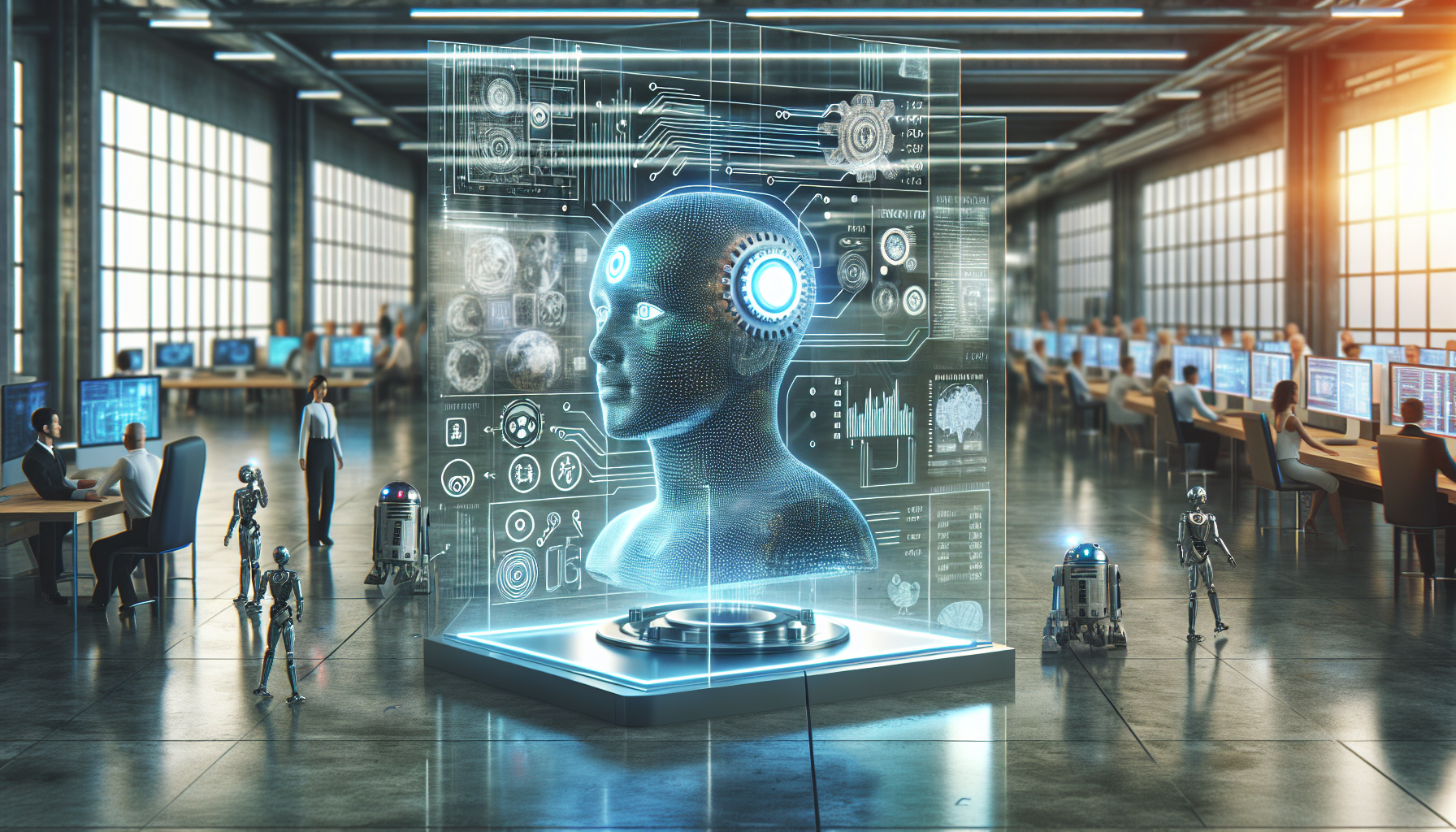
AI in Supply Chain Management: Optimizing Operations and Shaping the Future
May 13, 2025
The perpetual quest for efficiency and resilience in supply chain management has found a formidable ally in artificial intelligence (AI). As businesses seek more streamlined operations, AI presents a transformative opportunity to revolutionize how goods and services move from origin to end-user. This article delves into the future predictions of AI's role in optimizing supply chain management, shedding light on innovative possibilities that lie ahead.
AI's integration into supply chain management has already begun to yield significant benefits, such as enhanced forecasting accuracy, improved inventory management, and refined logistics planning. However, the horizon reveals even more profound changes. One of the most anticipated advancements is the development of autonomous supply chains. These self-regulating systems, powered by AI, aim to minimize human intervention by allowing machines to make decisions based on real-time data. This transformation could lead to unprecedented levels of efficiency, reducing both time and cost.
Another intriguing prospect is the use of AI to create more adaptive and resilient supply chains. In an era where global disruptions—whether due to natural events, geopolitical tensions, or unexpected demand shifts—are increasingly common, AI can provide the agility necessary to respond swiftly. By employing machine learning algorithms, supply chains can predict potential disruptions and automatically adjust operations to mitigate risks, ensuring continuity and reliability.
Moreover, AI's potential to enhance transparency and traceability in supply chains cannot be understated. As consumers and regulators demand more accountability regarding the origin and path of products, AI offers the tools to provide detailed insights. By leveraging blockchain technology alongside AI, companies can establish immutable records of transactions, ensuring that every step of the supply chain is visible and verifiable. This level of transparency not only builds trust but also aids in compliance with stringent regulations.
The environmental impact of supply chain operations is a growing concern, and AI is poised to play a critical role in promoting sustainability. Predictive analytics can optimize route planning, reducing fuel consumption and emissions. AI can also support the development of circular supply chains, where waste is minimized, and materials are reused or recycled. By analyzing data on material composition and lifecycle, AI can suggest ways to improve the sustainability of products and processes.
As AI technologies evolve, the collaboration between humans and machines will become more seamless, enhancing decision-making capabilities. AI will not replace human input in supply chain management but will augment it by providing data-driven insights that empower professionals to make more informed decisions. This partnership is expected to lead to more strategic thinking and innovative problem-solving, as AI handles routine tasks, allowing human experts to focus on complex challenges.
Despite the promising future, integrating AI into supply chain management poses challenges that must be addressed. Data privacy and security are paramount, as the reliance on massive datasets increases. Ensuring that AI systems are secure from cyber threats is critical to maintaining trust and effectiveness. Additionally, there is a need for robust ethical frameworks to guide AI applications, ensuring that they are deployed responsibly and without bias.
The shift towards AI-driven supply chains will also necessitate changes in workforce dynamics. As automation takes over repetitive tasks, there will be a growing demand for skills in AI oversight, data analysis, and strategic planning. Organizations will need to invest in reskilling and upskilling their workforce to harness the full potential of AI technologies.
In contemplating the future of AI in supply chain management, one cannot help but consider the implications of these technologies on global trade dynamics. Will AI create a more balanced playing field by enabling smaller companies to compete with established giants through efficiency gains? Or will it further consolidate power in the hands of those who can invest heavily in AI infrastructure?
As we stand on the brink of this technological revolution, it is crucial to ponder how AI will reshape not only supply chains but also the global economy. The transformative power of AI in supply chain management is undeniable, promising a future where operations are optimized like never before. Yet, as we embrace these advancements, we must remain vigilant in addressing the challenges they present, striving to create a future where technology serves the greater good. How will we ensure that the benefits of AI are equitably distributed across industries and societies? The answers to these questions will define the next chapter in the evolution of supply chain management.


